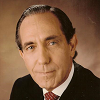 Guest post written by Néstor T.
Carbonell
Guest post written by Néstor T.
Carbonell
Mr. Carbonell is an international affairs consultant and author of "And The Russians Stayed: The Sovietization of Cuba."
On December 17, following a year and a half of secret negotiations with the Castro regime, President Obama trumpeted what many have called a historic breakthrough—a new course to normalize relations with Cuba.
The course, however, is not really new. It was pursued by 10 previous American presidents who tried to engage Fidel Castro directly or through intermediaries both during and after the Cold War. The desired rapprochement failed mainly because the Cuban dictator would not agree to stop his subversive activities and open up the island, or offer a modicum of respect for human rights.
What’s new about President’s Obama’s détente is that he is engaging Raúl Castro—not his ailing brother Fidel—and has not established any preconditions for normalization.
How different is Raúl from Fidel? He is certainly less charismatic and verbose than his older brother, but more focused and disciplined. While Fidel roused and manipulated the masses, Raúl, with Soviet assistance, quietly bolstered the armed forces and built the totalitarian infrastructure of the regime. Despite their contrasting physique and personality, they both share a visceral hatred of the United States, cold-blooded ruthlessness and mastery of deceit.
Fidel’s duplicity, combined with a fair amount of histrionics, is well known. He bragged about tricking the Cuban people, who fell for his promise to restore democracy, and unabashedly proclaimed in December 1961: “I am a Marxist-Leninist and will be one until the last day of my life.”
Fidel also was able to dupe U.S. presidents and senior government officials into believing that he would be amenable to a fair settlement of all outstanding disputes. Even David Rockefeller, a strong advocate of engagement who had a good rapport with Fidel, felt that he could help strike a deal with him.
Heading an impressive delegation of foreign policy heavyweights, Rockefeller presented to Fidel Castro in February 2001 a proposal developed by the Council on Foreign Relations to normalize U.S. relations with Cuba. After five hours of marathon discussions which ended at 4AM, Fidel rejected the “half-measures” proposed by the Council and demanded the unconditional lifting of the U.S. embargo without acquiescing to any significant economic and political reforms. A disillusioned Rockefeller wrote in his memoirs: “Castro harangued us continuously throughout the night…I think there is little possibility for change while Castro remains in power…”
But that was Fidel Castro. What about with Raúl now calling the shots and posing as a pragmatist? Even though Raúl had only introduced non-systemic, revocable reforms to alleviate the appalling living conditions on the island, Obama thought that he could be lured or tamed with goodwill gestures and concessions. So shortly after taking office in 2009, the President relaxed restrictions on travel and remittances to Cuba and voted in favor of inviting the Cuban regime to rejoin the Organization of American States, only to be rebuffed by both Castro brothers.